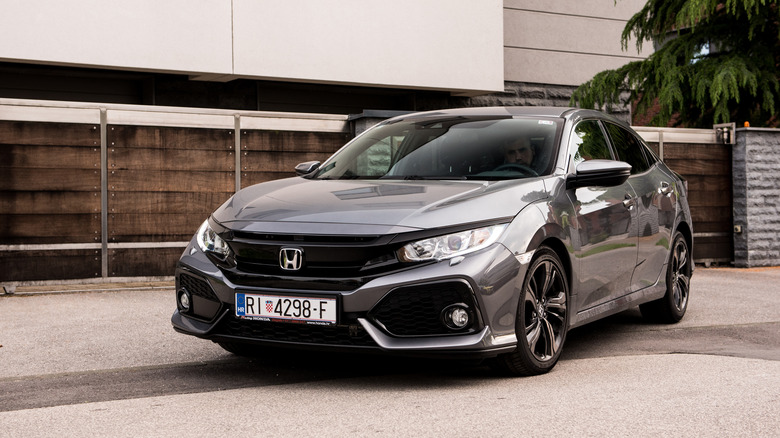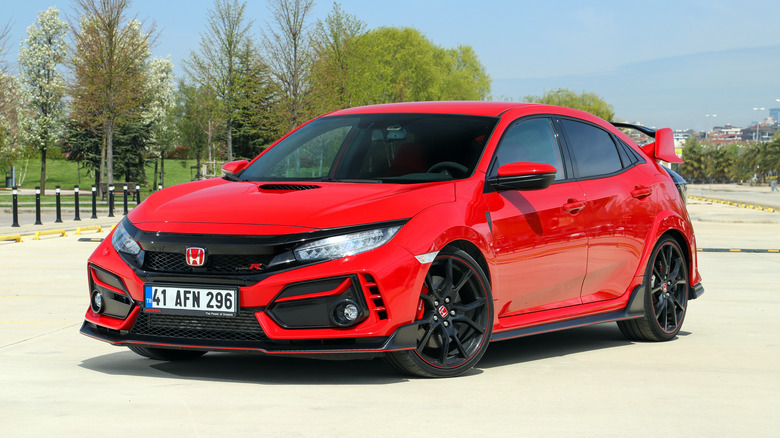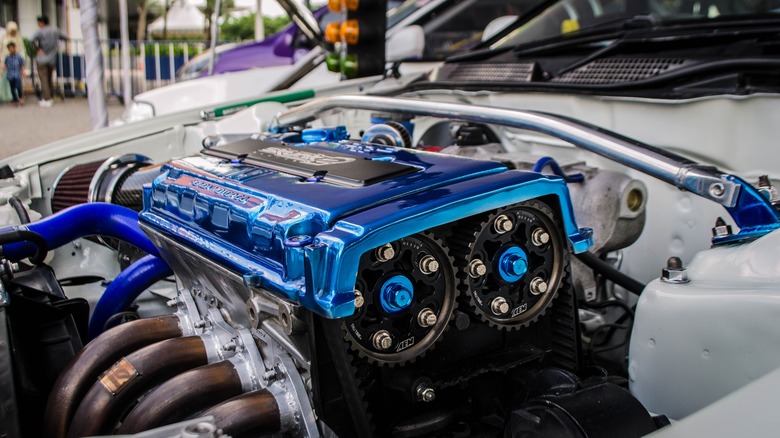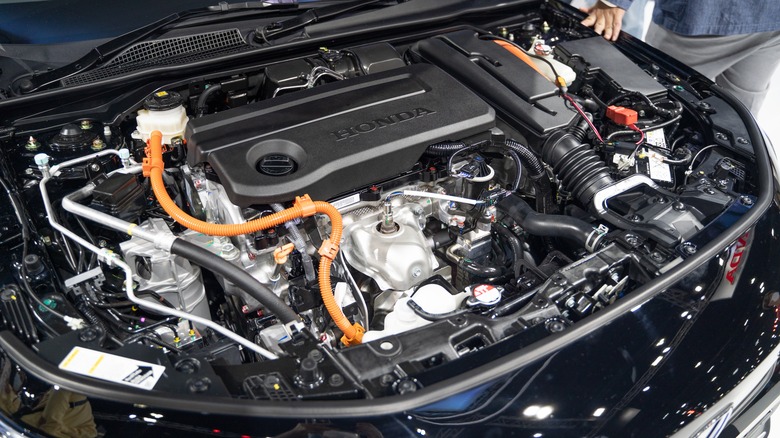A Simple Guide To Honda Civic's Engine Swap Compatibility
When accounting for every little component separately, the average auto has approximately 30,000 parts. The engine, of course, is an intricate construction in and of itself. If just one component of a car is to be swapped out, it's the one that would surely impact performance most. The classic Honda Civic affords owners some convenient options for modifying their vehicle's performance by doing exactly that.
Swapping a car's engine, like any act of tinkering under the hood, should be tackled only by those who know what they're doing. It's not a task to take on lightly. Regardless, mechanically-minded drivers can reap great performance benefits by swapping engines, potentially at a fraction of the cost of upgrading an existing engine or buying an entirely new vehicle.
Compatibility, however, is the biggest and most obvious concern to consider. One can't, naturally, just slap a Boeing 747's Pratt & Whitney PW4000 into a Honda Civic and speed (or perhaps fly) off into the sunset. Here's a look at some practical engine options with which the ever-popular Honda Civic (still boasting fantastic features in its 2023 guise) is compatible and the models that can accommodate them.
Why is the Honda Civic a good candidate?
While not flashy, the Honda Civic is a solid staple, something of a blank slate, the sort of trustworthy starting point that modifiers of everything from cars to game consoles will appreciate working with. Though the outlay will vary wildly depending on the generation, condition, and other elements, the Civic remains a popular target for engine swapping. Honda cars and motorcycles alike are known for their quality.
Getting the balance right is important when embarking on such a project. Compatibility issues can arise if an engine is too different from the vehicle's original, and other expensive components may be necessary. A 2JV engine, for example, would require replacement and refitting to work with a Civic. The safest bet is to opt for as close, and so as compatible, an engine as possible. At the same time, you want to get enough of a boost from doing so to warrant the process.
Civics from 1992 to Generation Eleven (encompassing Generations 5-8 and 10-11) are capable of undergoing the process, as well as some older models. Various engines have been successfully used for these projects, but your options will depend on what kind of Civic you have and what engines you can access.
Recommended engine swaps
Some engine families have easy swap-out compatibility with several generations of Honda Civic. Honda's VTEC D16 and D17 engines have powerful potential and are good "starter" swaps, not requiring more complex installation or modification. The trade-off for this is that they may not be easily tweaked.
Later-generation Honda Civics boasted engines of less than two liters (up to 2.4 in the 9th Generation), the R16 and R18. Torque Cars notes that more powerful K20 engines, which were the strongest available in such models, could be swapped into others from that generation, but components such as the wiring need to be altered to accommodate them.
Earlier-model Civics, largely boasting D13, 14, 15, and 16 engines, are good like-for-like targets for B16, 17, and 18 engines, particularly the A series. However, D16, 17, and 18 models are good for straightforward engine upgrades.
The best results, however, are often more complex to achieve. To replace a B16 or B18C1 engine for an LS-VTEC, for instance, is quite the upgrade but difficult to perform.
The potential dangers of engine swapping
Many drivers adhere to the age-old mentality that if it's not broke, don't fix it. It can be far from practical to change a vehicle's engine and rather time-consuming, even with the most compatible, "easiest" options. The project, however, is just that: a project. There are practical reasons relating to performance and possible savings to switch out a car's engine, and the engine itself may require it due to damage or faults.
On the other hand, there's nothing a gearhead enjoys more than tinkering under the hood, and this is a popular way to do just that. The first thing to note is that it's not necessarily a cheaper route: If you're not performing the change yourself, a quote from a qualified mechanic is crucial before beginning. The time taken and difficulty of the swap can vary wildly.
Engine swappers must also note that they may have to alter various other elements of the car, from the brakes to the transmission, to accommodate the change. Of course, there are also legal matters to consider and the increased costs (such as fuel) that can come with having a more powerful engine.
Whether for practical purposes or pleasure, an engine swap can be an intriguing endeavor, and the Honda Civic is a perfect model to use. As with a wide range of such projects, it's crucial to know what you're getting into before proceeding.



